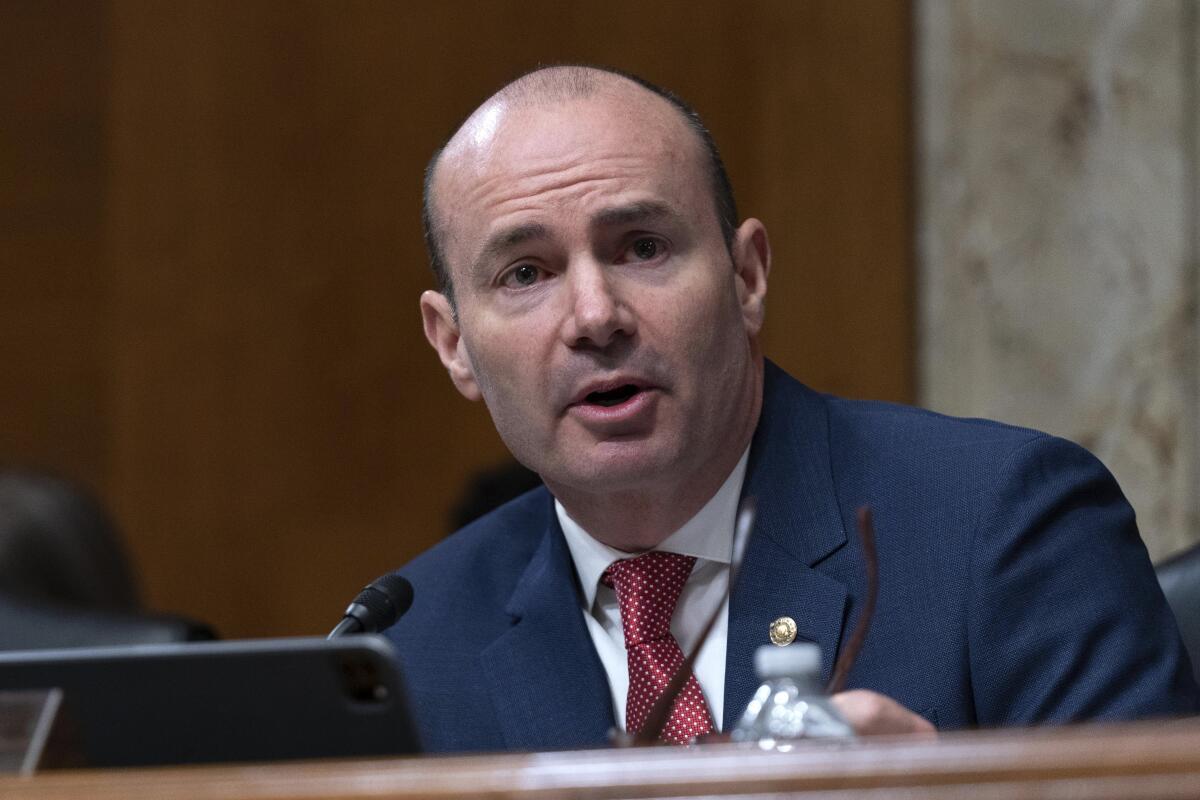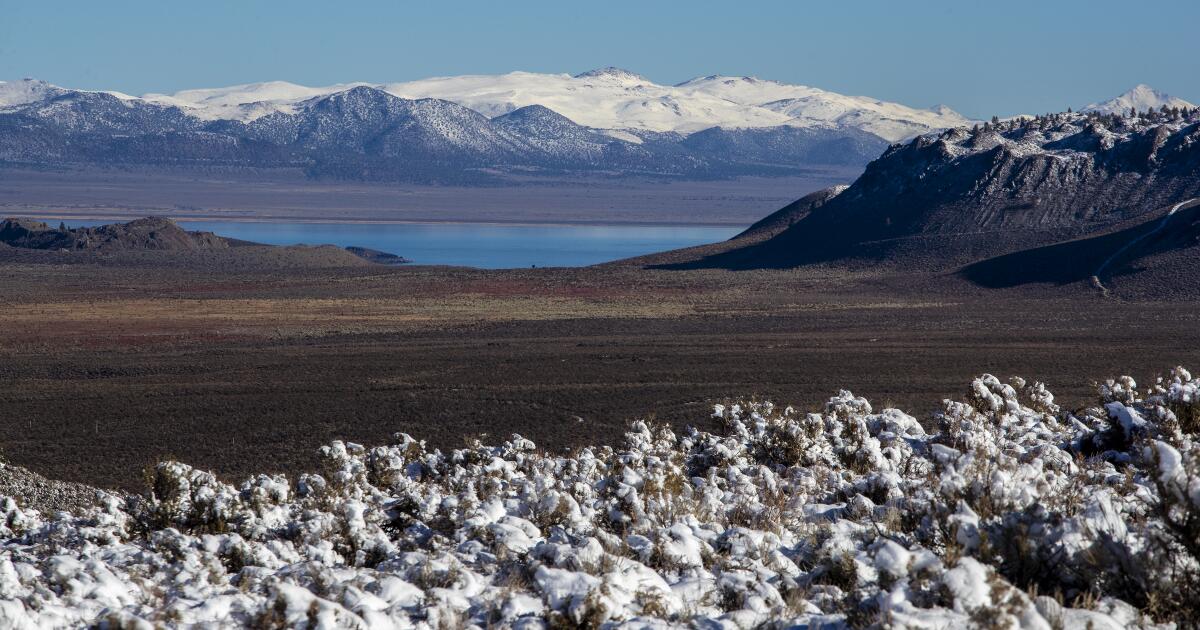Plan to sell off public land in the West nixed from GOP bill
A controversial plan to sell hundreds of thousands of acres of public land across Western states — including California — was axed from the Republican tax and spending bill amid bipartisan backlash, prompting celebration from conservationists.
Sen. Mike Lee (R-Utah), who spearheaded the proposal, announced he was pulling the provision on Saturday night on the social media platform X. Lee had said the land sale was intended to ease the financial burden of housing, pointing to a lack of affordability afflicting families in many communities.
“Because of the strict constraints of the budget reconciliation process, I was unable to secure clear, enforceable safeguards to guarantee that these lands would be sold only to American families — not to China, not to BlackRock and not to any foreign interests,” he wrote in the post.
For that reason, he said, he was withdrawing the measure from the “One Big Beautiful Bill” that Trump has said he wants passed by July 4.
Sen. Mike Lee (R-Utah), chairman of the Senate Energy and Natural Resources Committee, speaks at a hearing in January.
(Jose Luis Magana / Associated Press)
Lee’s failed measure would have mandated the sale of between roughly 600,000 and 1.2 million acres of Bureau of Land Management land in 11 Western states, including California. The areas available for auction were supposed to be located within a five-mile radius of population centers.
The effort represented a scaled-back version of a plan that was nixed from the reconciliation bill on Monday for violating Senate rules. The initial plan would have allowed for the sale of up to 3.3 million acres of land managed by BLM and the U.S. Forest Service.
Lee’s decision to scrap the proposal arrived after at least four Republican senators from Western states vowed to vote for an amendment to strike the proposal from the bill.
At lease five House Republicans also voiced their opposition to the plan, including Reps. David Valadao of California and Ryan Zinke of Montana, who served as the Interior secretary during Trump’s first term.
The death of the provision was celebrated by conservationists as well as recreation advocates, including hunters and anglers, even as they steeled themselves for an ongoing fight over federal lands.
The Trump administration has taken steps to open public lands for energy and resource extraction, including recently announcing it would rescind a rule that protects 58.5 million acres of national forestland from road construction and timber harvesting.
Some critics saw the now-scrapped proposed land sale as means to offset tax cuts in the reconciliation bill.
“This is a victory for everyone who hikes, hunts, explores and cherishes these places, but it’s not the end of the threats to our public lands,” said Athan Manuel, director of Sierra Club’s Lands Protection Program, in a statement. “Donald Trump and his allies in Congress have made it clear they will use every tool at their disposal to give away our public lands to billionaires and corporate polluters.”
Chris Wood, president and chief executive of Trout Unlimited — a nonprofit dedicated to conserving rivers and streams to support trout and salmon — described protecting public lands as “the most nonpartisan issue in the country.”
“This is certainly not the first attempt to privatize or transfer our public lands, and it won’t be the last,” Wood said in a statement. “We must stay vigilant and defend the places we love to fish, hike, hunt and explore.”
Lee, in the Saturday X post, suggested the issue remained in play.
He said he believed the federal government owns too much land — and that it is mismanaging it. Locked-away land in his state of Utah, he claimed, drives up taxes and limits the ability to build homes.
“President Trump promised to put underutilized federal land to work for American families, and I look forward to helping him achieve that in a way that respects the legacy of our public lands and reflects the values of the people who use them most.”

